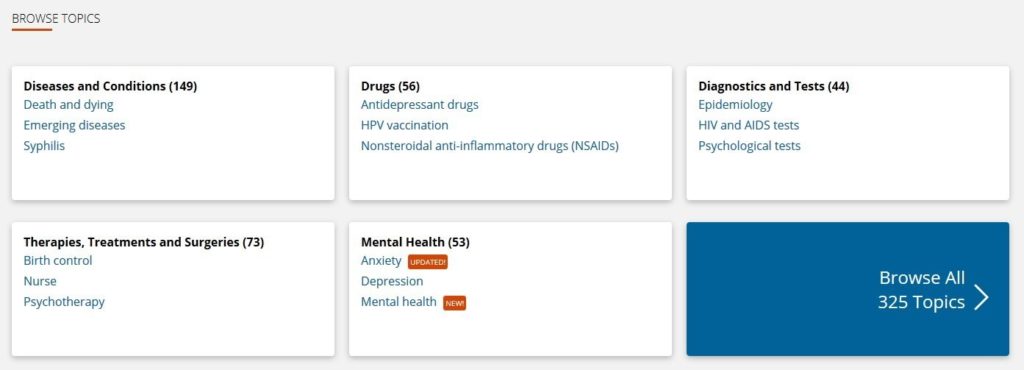| By Brigham Narins, Sr. Content Developer, Gale |
Mental health is health. Even though we tend to think of health somatically, and ill health as aches and pains and maladies of the body, the term has to include the mind and our psychological experience, for the two aspects of human life are intimately connected. Aches and pains and disease can “get you down,” and psychological disorders often entail physical symptoms and increased risk of other diseases. As the National Institute of Mental Health puts it:
It is common to feel sad or discouraged after a heart attack, a cancer diagnosis, or if you are trying to manage a chronic condition like pain. . . . Temporary feelings of sadness are expected, but if these and other symptoms last longer than a couple of weeks, you may have depression. . . . The health effects of depression go beyond mood—depression is a serious medical illness with many symptoms, including physical ones.1
Gale Health and Wellness has always included mental health topics—a lot of them, in fact: In addition to the complete editions of the Gale Encyclopedia of series, which includes The Gale Encyclopedia of Mental Health and The Gale Encyclopedia of Medicine, there are hundreds of reference articles and thousands of news, magazine, and journal articles on the subject. We’ve recently added 30 new topics—including coping strategies, Grief and Loss, Meditation, Mental Illness, Teens and Depression, and Teens and Stress—and to help highlight them and make the subject matter as visible as everything else in Gale Health and Wellness, we’ve added a new mental health portlet on the home page. Along with the existing categories of Diseases and Conditions; Drugs; Diagnostics and Tests; and Therapies, Treatments, and Surgeries, there is now Mental Health, which features links to topic pages like Alzheimer’s disease, anxiety, bipolar disorder, depression, mental health, and social media.
At this unique time in human history, when every person on the planet deals with the impact of the coronavirus pandemic—as we isolate ourselves, as we take precautions when we go outside, as we are forced to confront the real possibility of our own serious illness and mortality—we are affected psychologically, even if we never get infected with SARS-CoV-2, the virus that causes COVID-19. The virus affects everyone’s health, even those who never get infected. Because health is mental health.

1. “Chronic Illness & Mental Health,” National Institute of Mental Health, accessed April 20, 2020.
For more than 65 years, Gale, a Cengage Company, has partnered with librarians and educators around the world to build connections between content, technology, and people to further discoveries and insights for all. Today, we continue to support our partners and communities as they rapidly shift to online learning during this global crisis. While schools and libraries are closed, we’re offering open access to some of our most comprehensive resources, including Gale Health and Wellness, to support learning anywhere, at any time.
Ανδρικά Nike
